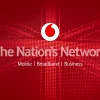Survey Claims Broadband ISPs Expect AI and Streaming to “Crush” Today’s Networks

A new survey of 200 “senior telecom decision-makers” from the USA, UK, and Australia, which was conducted by network technology firm RtBrick, has claimed that broadband ISP and mobile operators are at risk of being “overwhelmed by the demands of AI and streaming bandwidth” in the next 5 years – around 80% of respondents expect it to “crush” today’s networks.
According to RtBrick’s State of Disaggregation’ Report, the survey finds fault with people and processes. Top of the list is a lack of backing and appetite to change from leadership (93%); crippling complexity around operational transformation (42%) – ranging from redesigning architectures and workflows, to retooling how networks are monitored, automated, and supported – and a shortage of specialist skills/staff (38%) – necessary to design, deploy, and operate next-generation networks.
The result is said to be an “industry that knows what to do, has the budget to do it, yet struggles with execution“. At the same time, the data also appears to indicate that customer expectations may be “rising faster than the networks designed to meet them“.
Advertisement
The survey finds that almost 87% of respondents expect customers to demand significantly higher broadband speeds by 2030, while 79% believe those customers will pay more for it. But we have our doubts about the expectation vs reality of this. Multi-gigabit broadband speeds are already a thing in the UK for those covered by FTTP, and the vast majority would struggle to fully harness even 1Gbps, let alone several gigabits. On the other hand, marketing departments may well fuel a battle over the pursuit of ever-faster speeds, regardless of whether people can actually utilise it.
At the same time, aggressive competition in the UK is also keeping prices low, and we can’t currently see either AI or Streaming fuelling a massive increase in demand above existing levels – at least not at the consumer level (businesses may be different). Instead, we’d expect consumer demand to continue growing roughly aligned to current trends, but there’s admittedly no accounting for any unexpected developments that might crop up.
Back to the survey and half of all leaders admit they still lack confidence in delivering services at a viable cost, while 84% say customer expectations are already outpacing their networks (we’ve yet to see much hard evidence for that), and 81% concede their current architectures are nowhere near ready for the next wave of AI and streaming traffic.
Pravin S Bhandarkar, CEO and Founder of RtBrick, said:
“Senior leaders, engineers, and support staff inside operators have made their feelings clear: the bottleneck isn’t capacity, it’s decision-making. Disaggregated networks are no longer an experiment. They’re the foundation for the agility, scalability, and transparency operators need to thrive in an AI-driven, streaming-heavy future.”
The term disaggregated networks typically refers to a network architecture where hardware and software components are separated, which allows for more flexibility, scalability, and cost-effectiveness compared to traditional systems. This is not to be confused with software-defined networking, although they are related concepts that can work together.
Advertisement
Additional Survey Highlights
➤ 91% are willing to invest in disaggregation, and 95% plan to deploy within five years, with 90% saying it needs to happen faster than currently planned.
➤ Only one in fifty senior leaders has confirmed they’re “in deployment” with disaggregation today (quite a few of the biggest market players are doing this), while 49% remain stuck in early-stage “exploration”, and 38% are still “in planning”.
➤ Every leader surveyed claimed they’re “using” or “planning to use” AI in network operations, from planning and optimisation to fault resolution. But 93% say they cannot unlock AI’s full value without richer, real-time network data. Meanwhile, 50% say their infrastructure must become AI-ready, while 37% highlight the urgent need for stronger real-time analytics capabilities to realise AI’s true potential.
➤ When asked what they expect disaggregation to deliver, operators focused on outcomes that map directly to board-level priorities:
• 54% want more automation
• 54% want stronger supply chain resilience
• 51% want better energy efficiency
• 48% want lower CapEx and OpEx
• 33% want to break vendor lock-inTransformation priorities align with those goals, with automation and agility (57%) ranked first, followed by vendor flexibility (55%), cost efficiency and sustainability (45%).
➤ 90% of operators are demanding that their traditional vendors provide disaggregated options within three years.
Naturally, RtBrick could be said to have a vested interest in the results of this survey (they sell some related solutions), which may well also be at risk of a selection bias. At the same time, it’s worth remembering that most networks go through big core upgrades every few years and will ultimately adapt to requirements, just as they’ve always done.
In the end we highly doubt that any UK providers will face a network “crush” and, indeed, the survey might have produced more reflective results by filtering out to focus more on the network engineers (instead of company bosses) and splitting the results by country (the USA, UK and Australia have quite a few differences).
Mark is a professional technology writer, IT consultant and computer engineer from Dorset (England), he also founded ISPreview in 1999 and enjoys analysing the latest telecoms and broadband developments. Find me on X (Twitter), Mastodon, Facebook, BlueSky, Threads.net and Linkedin.
« Monzo Looks to Copy Revolut by Preparing to Launch a UK Mobile Service






















































Does AI really require that much bandwidth? As I see it you send the task to the data centre, it crunches the numbers and sends the results back. Does it really generate that much internet traffic? The real demand for bandwidth will come with streaming as we move away from DTV & DBS and that will probably be more of a problem with backhaul capacity rather than individual connections.
Could be reference to Video AI Slop, where more and more video is generated for individuals rather than mass appeal (which can be cached closer to the user)
It’s not well worded but “AI” and “streaming bandwidth” are separate things. They mean the difficulties of integrating AI into their (old) network management systems not the amount of bandwidth AI uses. The assumption being that AI driven systems are needed to boost and manage capacity without increasing (or while reducing) running costs.
I’d be interested in what their raw numbers for this are, and why they think it’s going to be a challenge.
The change streaming brought with it is that it detached peak utilization from connection speed; with downloading, anything you did that caused significant usage across a month also meant that you’d notice your provider not providing the full speed of your connection; if your download can’t saturate the connection, you notice and complain, because you’re waiting for the download to complete. As a result, if your provider sells you a 1000M connection, you will get upset if congestion means it can only deliver 700M.
Further, if you go back to before the Internet, voice traffic had a similar pattern. Each line added a fairly predictable amount of demand to the network, depending on whether it was business or residential; you knew that fitting a POTS line, or an ISDN30, to an address would have a given impact on your network.
With streaming, this changes. If your streaming service maxes out at 25 Mbit/s (Netflix Premium’s peak, according to Google), then you may use as much data as a downloader, but you’re not going to notice your provider’s network not delivering full speed to you; if your 1000M connection is only able to deliver 100M due to congestion effects, you’re simply unlikely to even notice this if you’re using 3x streaming at 25 Mbit/s peak plus WhatsApp.
As a result, it’s possible that streaming plus AI won’t be as big an impact as predicted by “senior telecom decision makers”, since the effect is different to past increases in demand – increasing your peak speed no longer has as direct an impact on the network in the way it did in the past.
I’m fairly sure neither of those use cases are bandwidth-heavy. Let’s say you double the bitrate of streaming content – is 40Mbps for a couple of hours a day really going to trouble a network?
I’ve been trying to think of applications that may use AI and be bandwidth hungry. The only things I could think of are Mixed/virtual reality applications; And things like traffic management and control, in a future where all cars and road systems are managed in real time by AI, with lots of data constantly exchanged between edge servers and the various systems. I couldn’t visualise any issues on FTTP, but maybe on the mobile networks, where I imagine lots of roadside cell’s using short range high bandwidth frequencies may be required.
I’m way ahead of that prediction, I already on 1gig tariff broadband already and I have been using AI since the days of cortana, siri, Google assistant to now Gemini, perplexity and ChatGPT for years now.
What a load of nonsense. Traffic growth is slowing down, and negative in some markets already. And AI will increase load on the backbone but probably reduce load on the access networks (why do 20 searches and look at all the associated webpages if ChatGPT can summarise it into one paragraph of text?)